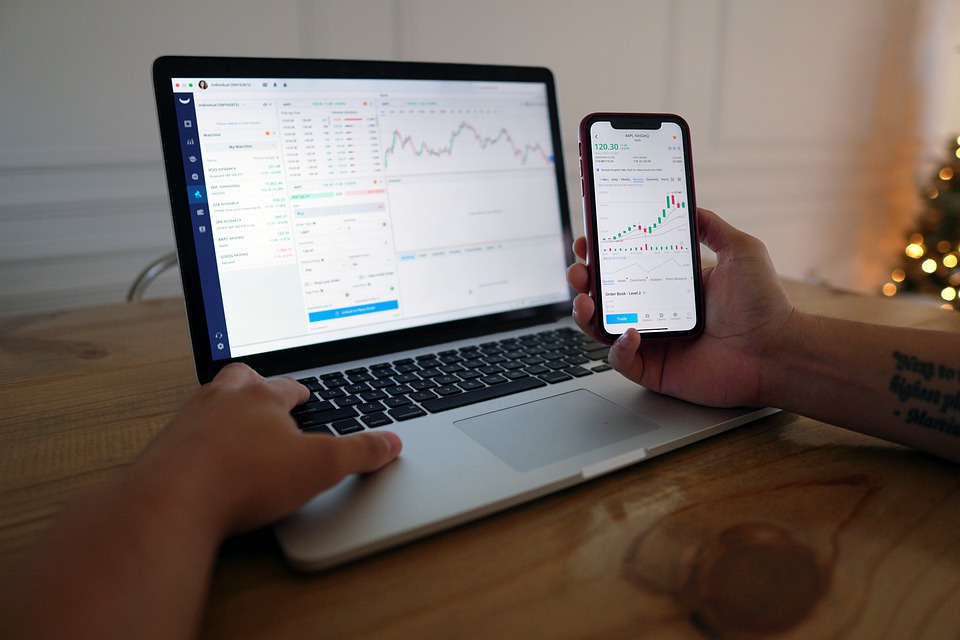In the world of finance and trading, one common problem plagues aspiring traders – the lack of capital. It’s the ultimate roadblock on the path to realizing substantial profits. But what if there was a way to overcome this obstacle and access the financial markets with the capital you need? Proprietary trading might just be the key to unlocking your trading potential. This article will delve into the world of prop trading, explaining what it is, how it works, and its advantages.
What is Prop Trading?

Proprietary trading, often referred to as “prop trading,” is a unique form of trading where a firm uses its own capital to engage in financial markets. This contrasts with traditional trading, where traders use their personal funds or funds provided by external clients or investors. In prop trading, the firm takes on the role of the investor, providing the trader with capital to manage. This capital is known as “proprietary” or “prop” trading capital, hence the name.
How Does Prop Trading Work?
The primary objective of prop trading is to generate profits for the trading firm, and the profits are then divided between the trader and the firm based on a predefined agreement. Additionally, these trading firms offer their traders sophisticated trading platforms and tools, which empower them to execute trades across different financial markets, with a particular emphasis on the forex market. Additionally, these firms establish specific guidelines for managing risk and set limits on trading activities to prevent significant losses. Traders are expected to follow these risk management rules. Some prop trading firms may also specify a profit target. When traders reach these targets, they qualify for a “funded account,” allowing them to utilise the firm’s capital for trading.
Advantages of Proprietary Trading

There are several advantages to engaging in proprietary trading, which make it an attractive option for many traders:
Higher Capital
One of the most significant advantages of prop trading is the access to higher capital. Proprietary trading firms provide traders with substantial trading funds, which are not typically available to those trading with their own capital or with traditional brokers. This higher capital allows traders to manage risk more effectively and can lead to more significant profits over time.
This is especially advantageous for traders with smaller capital amounts. In traditional trading environments, individuals with limited funds can easily over leverage their positions, putting their capital at considerable risk. In contrast, prop firms offer a more structured approach to risk management, ensuring that traders can maintain their accounts and work towards long-term success.
Amplified Leverage Opportunities
Another distinct advantage of prop trading firms is their capacity to offer significantly higher leverage to traders. Leverage plays a pivotal role in trading success by enabling traders to command larger positions with a relatively small fraction of their personal capital. In the realm of proprietary trading, traders have the unique advantage of harnessing this amplified leverage, which can dramatically enhance their trading potential and open doors to larger market opportunities.
Trader Support and Education
Proprietary trading firms go beyond providing capital and leverage. They also offer valuable resources and support to their traders. This includes access to proprietary trading algorithms and strategies, training programs, technical assistance, and development opportunities. Traders benefit from ongoing education, helping them stay current with market trends and develop their skills for long-term success.
In addition to structured educational resources, traders often become part of a supportive community where knowledge sharing, insights, and mentoring opportunities are readily available. This community dynamic can provide motivation and accelerate learning, making it especially valuable for those trading independently from home.
Furthermore, proprietary trading firms implement systems that encourage discipline and focus, ensuring traders make informed decisions and manage risks effectively.
Better Risk Management and Trading Strategies
Effective risk management is a crucial aspect of successful trading. Proprietary trading firms are known for their rigorous risk management policies, which aim to protect their capital and limit potential losses. These policies include:
Position Sizing: Prop firms employ position sizing limits to control the size of positions traders can take. This is vital in preventing excessive risk-taking.
Risk Management: Prop firms use stop-loss orders, which act as predefined exit points to limit potential losses on trades. These orders automatically close positions if the asset’s price moves beyond a certain threshold.
Hedging: Proprietary trading firms often use diversification and hedging techniques to spread risk across different assets and offset potential losses in one market with gains in another. This helps safeguard their capital and maintain a low-risk profile.
Generous Profit Sharing and Incentives
Traditional brokers often offer profit-sharing arrangements that grant a percentage of the profits to traders. However, these arrangements may not always align the trader’s interests with those of the brokerage. In contrast, proprietary trading firms like True Forex Funds offer more attractive profit-sharing incentives that motivate traders to perform better.
True Forex Funds, for instance, offers a generous 80% profit sharing with its traders. This means traders receive the lion’s share of the profits generated from their funded accounts. In contrast, traditional brokers typically provide a fixed percentage, which may not be as favorable.
Additionally, the profit-sharing model in proprietary trading encourages traders to adopt long-term strategies and focus on consistent profitability, aligning their interests with the success of the firm.
How to Find the Right Proprietary Trading Firm for You

Choosing the right proprietary trading firm is a crucial decision for traders looking to enter this realm. Here are some factors to consider when making your selection:
- Amount of Capital and Leverage: Determine how much capital the prop trading firm is willing to provide you and what level of leverage they offer. This can significantly affect your trading potential and risk tolerance.
- Profit Split: Understand the profit-sharing arrangement between you and the firm. Some firms offer a more favorable split, so compare and choose one that aligns with your financial goals.
- Reputation: Research the firm’s reputation. Look for online reviews on platforms like TrustPilot and other reputable sources to get a sense of their track record and what other traders have experienced.
- Risk Management Policies: Examine the risk management policies in place. Ensure the firm has clear guidelines and limits to protect against substantial losses, and assess if these align with your risk tolerance.
- Fees and Costs: Understand all fees and costs associated with trading through the firm. This includes commissions, spreads, and any other charges. Make sure these are transparent and reasonable.
- Regulatory Compliance: Verify that the firm is registered with relevant regulatory authorities and adheres to industry standards. This helps ensure your protection and the legitimacy of the firm.
- Support and Resources: Assess the level of support and resources the firm provides. This includes access to trading tools, educational materials, and customer support. A firm that offers strong support can be invaluable, especially if you’re new to proprietary trading.
Remember that the right prop trading firm for you will depend on your individual trading goals, risk tolerance, and experience level. Take your time to carefully evaluate these factors before making a decision.
Conclusion
In the realm of finance, where capital is often the limiting factor, proprietary trading stands out as a viable solution. It allows whoever is interested in exploring the financial markets, to do so with a significant capital advantage. The advantages, the need for continuous improvement, and the array of opportunities make proprietary trading a fascinating subject for those looking to break free from the constraints of limited capital. So, if you’re ready to embark on a journey of financial discovery, consider delving into the world of proprietary trading and experience the difference that ample capital can make in your trading endeavors.









